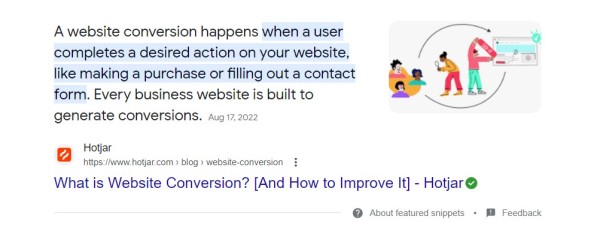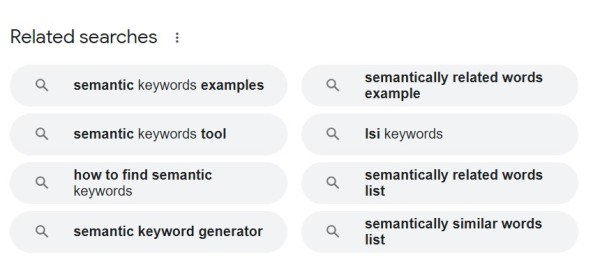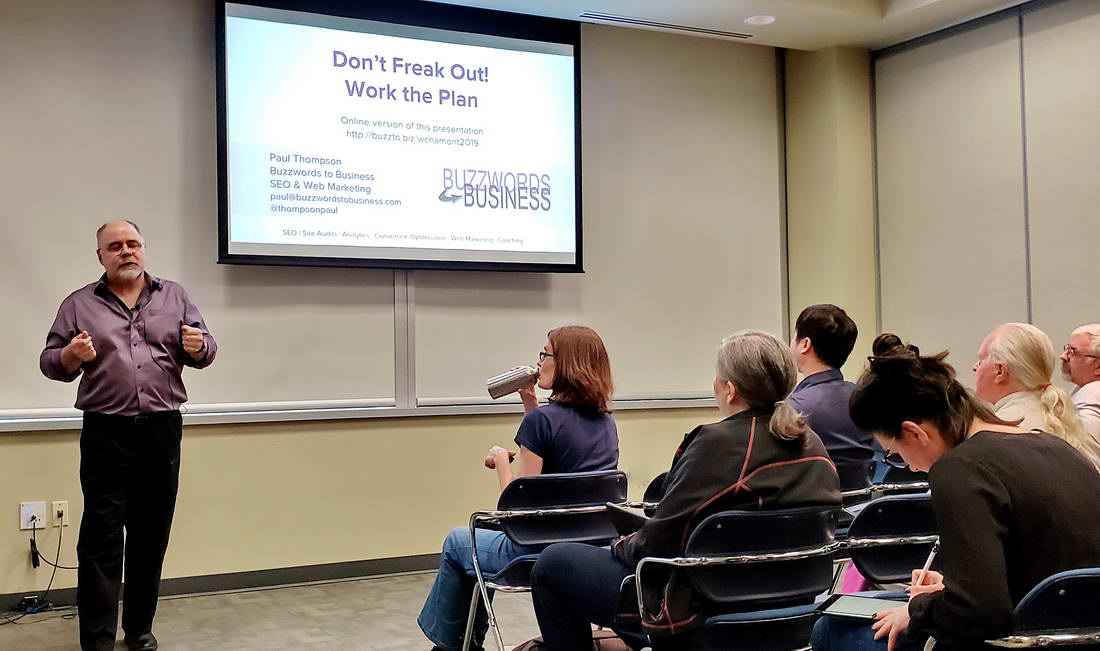Keyword Research: What You Need to Know

This page may contain links to Amazon.com or other sites from which I may receive commission on purchases you make after clicking on such links. Read my full Disclosure Policy
If the primary goal of your website is to attract search engine traffic, it’s essential to know what words your audience uses to search for your content.
Using these search terms in your content will make it more likely that it will appear in search results, increasing the number of people who will click through to your website instead of someone else’s.
In SEO, these terms are referred to as keywords. Keyword research is an important first step before you begin writing your content.
What is keyword research?
Keyword research is the process of discovering the words and phrases that people type into a search engine when looking for information.
When you incorporate the language people use when searching for the information you offer, you’ll be able to write content that is valuable, high-quality and shows up in the search results. This will in turn get your business in front of more potential clients and help you get better results from your website, blog posts, and other content.
Why does keyword research matter?
Keyword research is important because it aligns the search terms your audience uses with the words you use in your content.
If you use different words to describe your business than those your audience uses to search for what they need, they aren’t going to find you! As a result, it’s going to be hard to get traffic to your site.
Keyword research ensures that you’re using the same words as your target audience, which will help you to create content that’s valuable to them.
What are the benefits of keyword research?
Effective keyword research will alert you to topics and keywords your audience is searching for that are related to your industry, providing you with valuable marketing insights.
When you identify the best keywords and use them to create the type of content your target market is looking for, you’ll rank higher in search engine results, and more traffic will be attracted to your website. Increase the likelihood of them wanting to work with you by including a strong call to action on your site.
Please note, however, that keywords alone are no longer enough to generate significant traffic, because search engine algorithms have been developed beyond simply looking for an exact word match.
Is keyword research still relevant in 2023?
Although keyword research has changed in recent years, it can still be useful.
There was a time when it was common to stuff your content with keywords in order to push your pages to the top of the search results. Unfortunately, this emphasis on keyword density over quality resulted in text that was unnatural and hard to read, so even when people clicked through, they got nothing of value and it didn’t bring the intended results to the website owners.
Google and other search engines are constantly tweaking their algorithms to deliver results that are most relevant to what people are trying to find, so the old approach to keyword research no longer works. Instead of improving your search engine ranking, keyword stuffing will actually hurt it.
Read SEO for Professional Organizers in 10 Minutes or Less by Aaron Traub to learn more about search engine optimization.
Current Trends in SEO
Search engine algorithms are continually being evolved, and your keyword research will need to be refined accordingly. Here’s what’s happening right now:
Voice Search
Voice search is becoming more and more common due to apps like Siri and Google Assistant. In most cases, people will ask a question like What’s the best hotel in Paris? rather than Paris hotels. Consider whether changing the format of the search query in this way will impact your keywords.
In a recent article on Forbes, Cynthia Sener said:
To optimize for voice search, marketers need to think differently about search engine optimization. For one, brands should create high-quality content that answers specific questions, uses conversational language and integrates long-tail keywords.
Read What The Impact Of Global Voice Recognition Means For Today’s Brands for more information about optimizing for voice search.
Answer Boxes
To give you the most relevant content related to a search, search engines will often answer the query in a featured snippet or answer box.
Here are answers I received on Google to the question what is a conversion on websites.

Being aware of frequently asked questions and answering them on your site will help your content get featured prominently like this. On the down side, if the snippet fully answers the question, people may not bother clicking to read the rest of your content, or even notice that it was your business that published it.
Semantics
You may have noticed that when you do a search, there is a list of related searches at the bottom of the results page. This is what comes up under semantics in keywords:

Because of this, it’s no longer enough to optimize your content for a main keyword or phrase. You also need to include related keywords.
For a more detailed explanation, read Semantic Keywords: What They Are & How to Find Them on the Semrush Blog.
To be continued…
Keyword research is too big a topic to fully address in one blog post! I’ll share additional information in the coming months, including helpful tips to help you research and use your own keywords.
If you’re not already a subscriber, sign up now so you don’t miss out!
Post your questions about keyword research in the comments, and I’ll try to answer them in a future post.
Photo by REDPIXEL / DepositPhotos

Janet Barclay
I eliminate stress for my clients by hosting, monitoring, and maintaining their WordPress sites so they don’t have to worry about security, downtime or performance issues. When I’m away from my desk, I enjoy reading, photography, cooking, watching movies, drinking tea, and spending time with my family.




I might be looking into these this week. I actually read the post a few days ago and have been thinking about it.
Getting your blog “seen” is part of blogging, and this is a smart way to do it. It has gotten more sophisticated over time, so I appreciate your going through this in detail. Just using that one word or phrase won’t do it.
I feel like this is now a whole subspecialty of marketing. Those who do this well will need to invest the time to stay on top of it.
Now is that me? That’s what I’m pondering…
You’re right, there’s always something new. But even though things keep changing, I believe the basics I outlined in Search Engine Optimization Basics will still make a big difference.
I love the backend of the Squarespace platform my site is built on. I can see the keywords and phrases people use to find my site. That helps me know what people are most interested in.
When writing, I often find alternate words and phrases to make a point so I don’t use the same word repeatedly. Based on your bringing up ‘semantics,’ it sounds like my doing this might also help with SEO.
I look forward to reading more about keywords and searches. Thank you for always keeping us informed.
That’s really helpful to have that information right in the back end of your site!
Like you, I usually try not to repeat the same words too often in a post, mainly because I think it’s more readable that way.
I do believe keyword research is important. However it can become a black hole looking at all the data. So start with a specific keyword and see where it leads you. We only have so much time in a day.
Great tips! I’m going to be sharing this one.
I think you’ve identified one of the big challenges in SEO – staying focused! There are countless possibilities and you can easily get overwhelmed, especially if you’re not a trained SEO specialist.
Thanks for sharing – much appreciated!
This is so helpful. Thank you for sharing.
My pleasure!
The increased sophistication of keywords (and SEO) since I first started my website in 2002 and my blog in 2007 really have my head spinning. The idea of conceptualizing all of this for voice search and creating answer boxes requires new levels of thinking. Like Linda, I do think I’m hitting the right spot with semantics in the natural manner of writing with different approaches to the same concept, but wow, this requires a lot of commitment.
Thanks for writing this and keeping us focused where we need to be.
I’m glad you found it helpful and hope it didn’t add too much head-spinning. 🙂